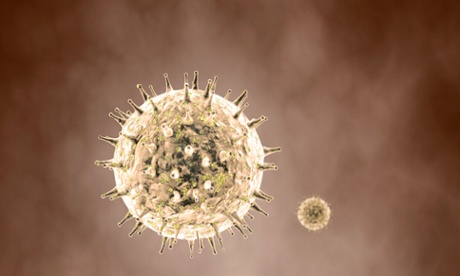A vaccine that more than doubles the survival time of patients with the most common and aggressive form of brain cancer has been developed by scientists.
Early results from clinical trials suggest patients who received the vaccine lived for nearly three years after being diagnosed with glioblastoma multiforme.
Patients given traditional anti-cancer treatment, including a combination of surgery, chemotherapy and radiotherapy, typically survived for a little more than a year following diagnosis.
John Sampson, a neurosurgeon at Duke University's brain tumour centre in North Carolina, who led the trial, said: "We're more than doubling the survival time in this group, and we have some patients who are four, five or six years out from diagnosis, which is virtually unheard of in these people."
The vaccine contains fragments of a protein that is found on the surface of around half of all the tumours.
When the vaccine is injected, it stimulates the immune system to kill off brain cancer cells and prevent the regrowth of tumours that have already been treated. Although only one in 300,000 to 500,000 people develop glioblastomas in Europe and North America, they account for more than half of all brain cancers. Some researchers believe rates of the tumours are rising, partly because of better techniques to detect them, but also because of as yet unknown environmental factors.
In the trial, 23 patients who had received standard cancer treatment, were given monthly injections of the vaccine in combination with the common chemotherapy drug, temozolomide. The drug appears to boost the immune system's response to the vaccine, making it more effective at ridding the body of cancerous cells. "While the body is recovering from chemotherapy, immune response is actually stronger as the immune system overcompensates in order to right itself. It's the perfect time to introduce a vaccine," said Sampson.
Patients typically showed no signs of their cancer returning for 16.6 months, compared with a 6.4 month cancer-free period that is expected after treatment. On average, the vaccinated patients survived for 33.1 months after diagnosis, while those who received standard treatment lived for 14.3 months.
Sampson announced results of the phase two trial of the vaccine at a meeting of the American Society of Clinical Oncology in Chicago yesterday.
The doctors say they have yet to identify any side-effects of the vaccine, beyond occasional swelling at the site of the injection.
A larger trial, to be conducted at 20 centres across America, is being set up. "The possibility of doubling expected survival, with few if any side-effects, would represent a big step and a lot of hope for this group of patients," said Sampson.
Henry Scowcroft of Cancer Research UK said: "Although this trial only involved 23 patients, the initial results appear very encouraging. Since temozolomide, a drug developed by Cancer Research UK, was licensed in 1999, it has provided huge benefits for many people with glioblastoma ... But these findings need to be confirmed, and built upon, in the next phase of development."





